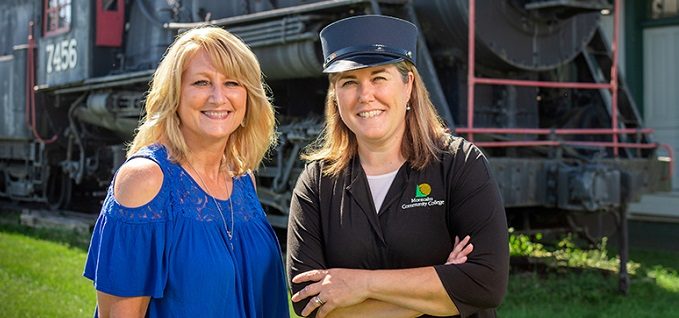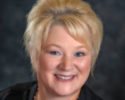Personal approach helps Michigan college boost enrollment, retention
By Shelly Springborn
June 15, 2022
Declining enrollments and low retention rates are issues plaguing many institutions, and there are no perfect solutions. There are just too many factors: diverse populations, family and work commitments, financial distress, lack of support, housing, program and course offerings, Covid – the list goes on.
Now more than ever, students are used to immediate gratification. They have grown up in the Amazon world, where nearly everything is available at the click of a mouse or swipe of a screen with virtually no wait. Students expect to have amazing customer experiences at every turn. If they don’t, they move on to the next opportunity.
To meet audiences where they are at, the marketing and recruiting departments at Montcalm Community College (MCC) in Michigan found the key to success, which is creating instantly responsive, personalized support structures to predict and meet students’ needs quickly and efficiently.
Student engagement drives enrollment
Research shows that students who engage with their college, both in an out of the classroom, are more likely to succeed and stay enrolled. At community colleges, research has also shown that interaction with college faculty influences retention at perhaps a higher rate than other college connections.
This article is part of a monthly series provided by the National Council for Marketing & Public Relations (NCMPR), an affiliated council of the American Association of Community Colleges.
Julie DeJohn returned to MCC last summer to finish what she started nearly 30 years ago, and a new program gave her the confidence she needed to be successful. As a new student, DeJohn participated in the MCC Express Conductor Program, which partners students with a conductor to answer their questions and help every step of the way. The goal is to assure students feel comfortable throughout their college journeys so they get the most out of their college experience.
“I wasn’t sure how I would do having not been in school for so long,” DeJohn said. “Even if I didn’t need (the conductors’) support, I knew they were there. It gave me a lot of confidence.”
This is just one of several initiatives that has helped MCC reverse a 10-year downward enrollment trend. Since summer 2021, the college has experienced enrollment increases each semester.
Facing challenges head on
When MCC President Stacy H. Young joined the college in January 2019, its enrollment was struggling. Thanks to a variety of changes, however, MCC is seeing notable positive enrollment changes.
Young quickly created an enrollment task force that brought together individuals from every department on campus to discuss weaknesses and opportunities. The group focused heavily on retention and new students.
“We were at a critical point,” Young said. “We were struggling to retain students from one semester to the next. We knew we had to turn this around.”
With enhanced marketing and outreach, the college focused on feeding more leads into its funnel. MCC entered into a one-year contract with Ruffalo Noel Levitz, an Iowa-based enrollment management service, to evaluate and enhance its recruitment and retention funnel.
“We knew we had to design a service that was appropriate for all of our customers, to create the ‘wow’ factor and give (students) a memorable experience,” Young said.
Getting personal
The college piloted its MCC Express program last summer. Data from the pilot program showed a 91% retention rate of students from summer 2021 to fall 2021. Nearly 60% of the students in the pilot program increased their GPA, with an average of 3.03. Further, more than 85% of these students earned grades of C or better, and 92% are in good financial standing.
College completion coach Lacey Tullis works full-time with the MCC Express program. Since January, she has conducted individual meetings with nearly 10% of the college’s student population and found that the one-on-one connection is key. Initially, Tullis said, she learns about students’ financial situations, what type of support system they have at home, how they manage their time, and their future goals. She also spends time in class with some students.
“I have found that sitting alongside them in the classroom has really made a difference,” she said. “They get to know me and trust me. When they have questions or concerns, it’s a comfortable conversation.”
Collaboration across campus is a key to success. Building relationships with financial aid, student services, student success, testing, and other departments has been important, Tullis said. She cited a Georgetown University study that concluded, “Students just need one caring adult in their college career.” Her goal is to be that person, often sending students personal notes of encouragement.
“Many of our students tell us they feel so supported by MCC,” she said. “I’ve had many students reach out and tell me it’s nice to hear that we’re proud of them for their accomplishments.”
One-stop shopping
Another initiative brought all of MCC’s student services to one physical location, which now houses student services, financial aid, the business office, the Student Success Center, MCC Express and counseling/advising. Previously, those services were in different buildings on the main campus, which often confused and frustrated students, said Debra Alexander, MCC dean for student and enrollment services.
“Bringing together all of these areas in one location has simplified the process and enhanced our user experience,” she said. “This has been a game-changer.”
This article is part of a monthly series provided by the National Council for Marketing & Public Relations (NCMPR), an affiliated council of the American Association of Community Colleges.



